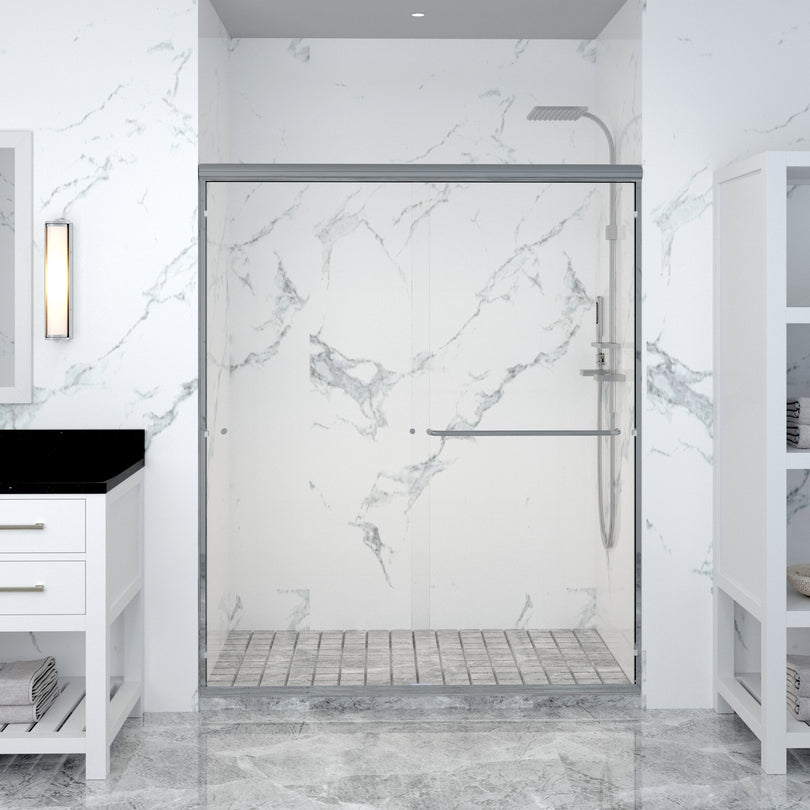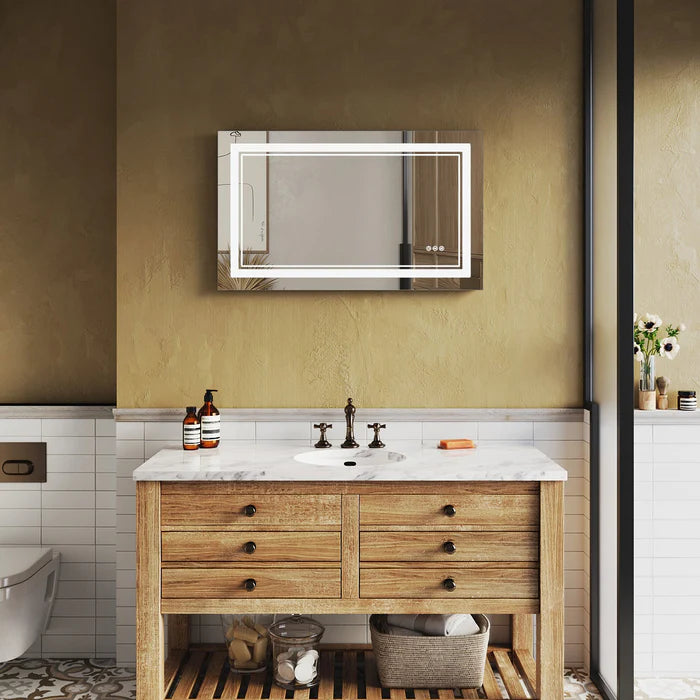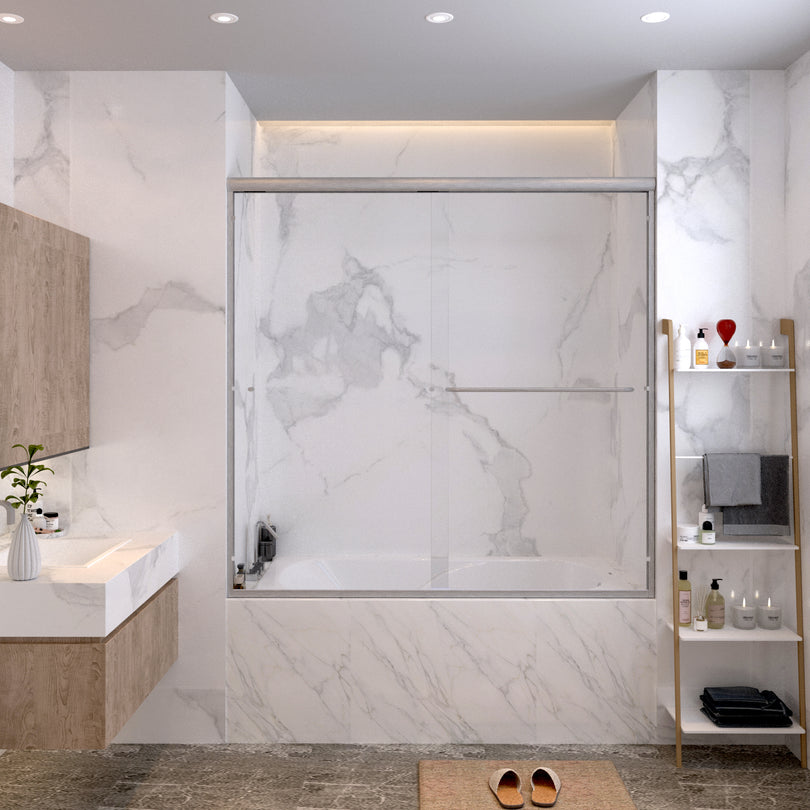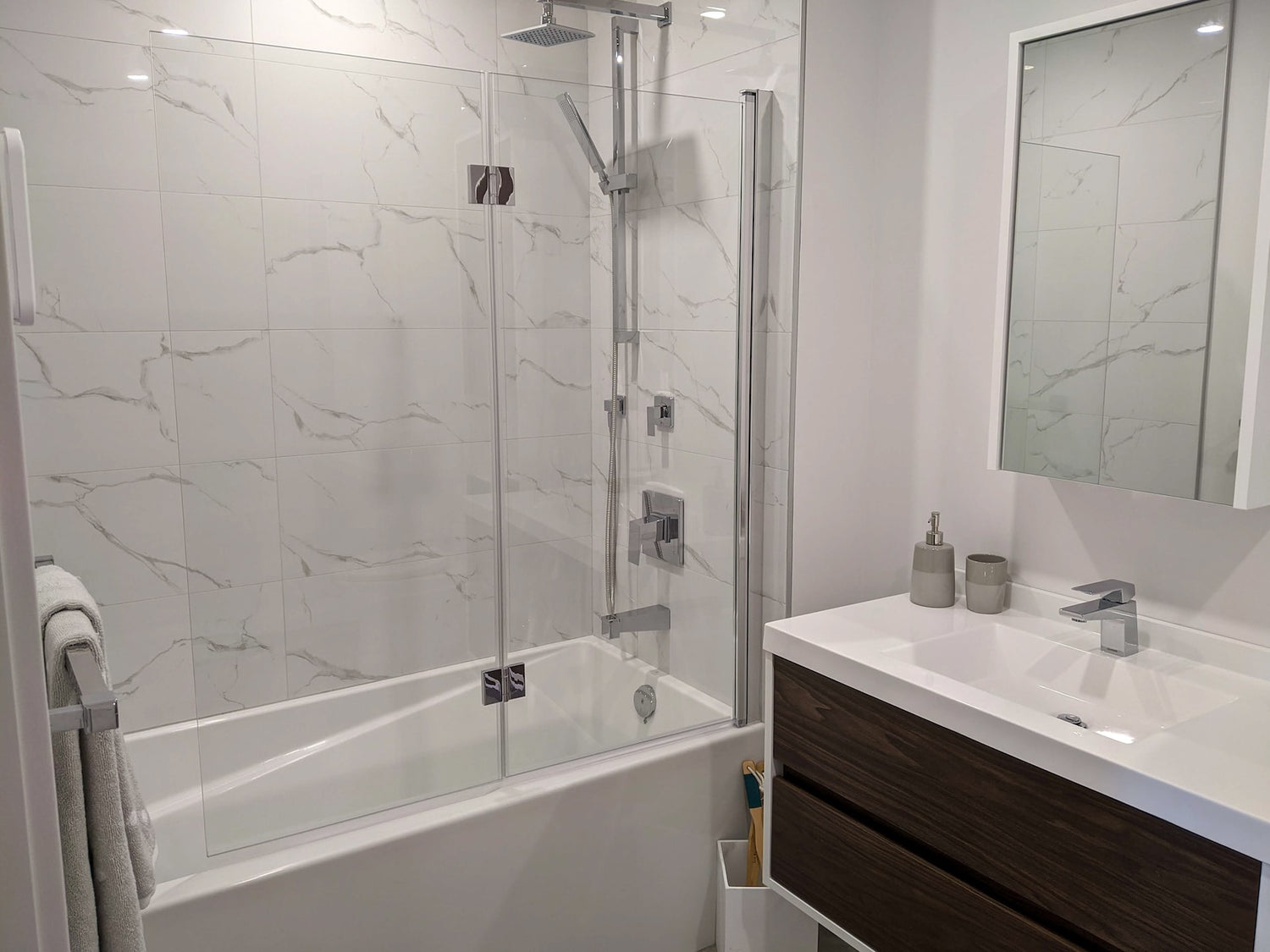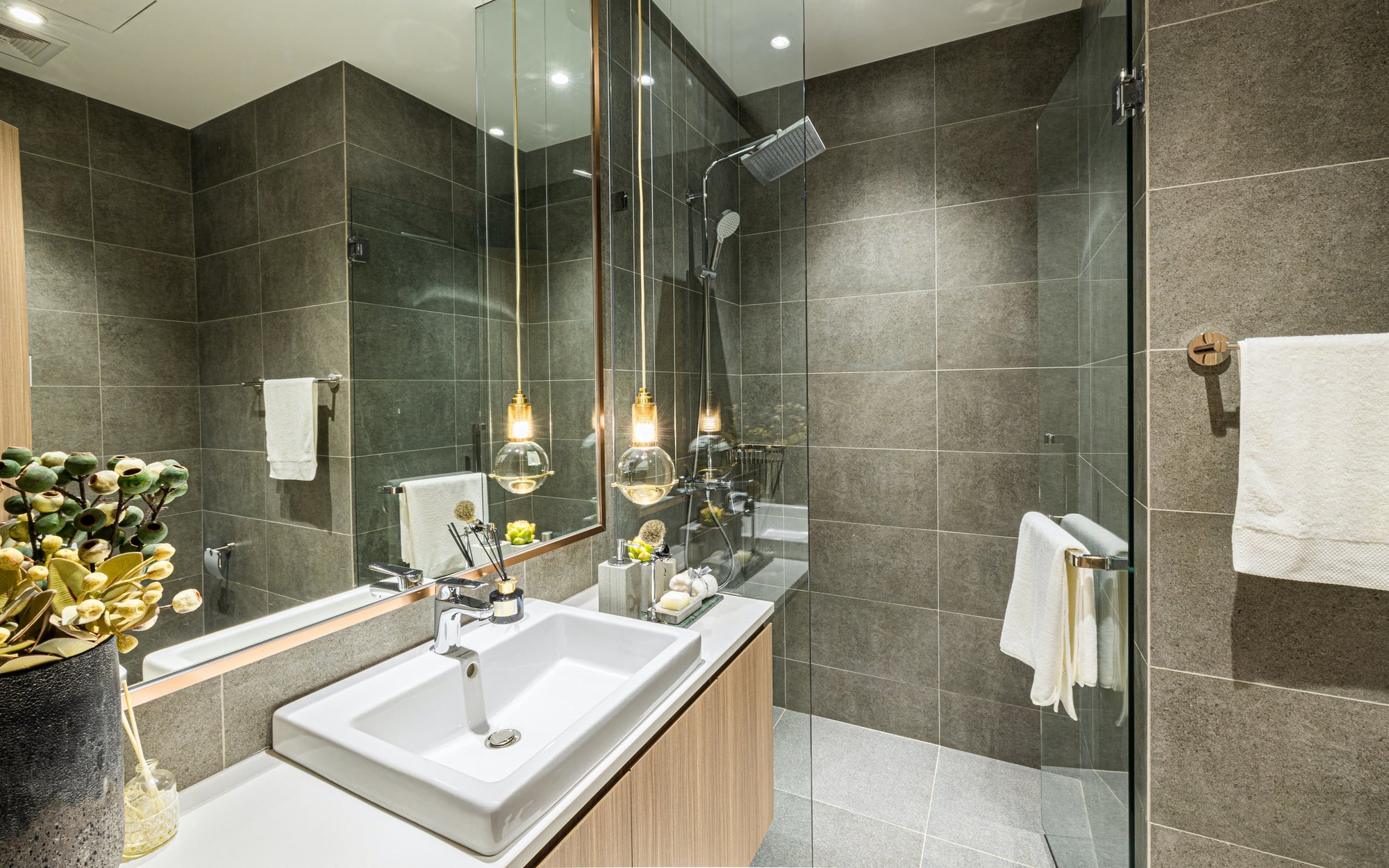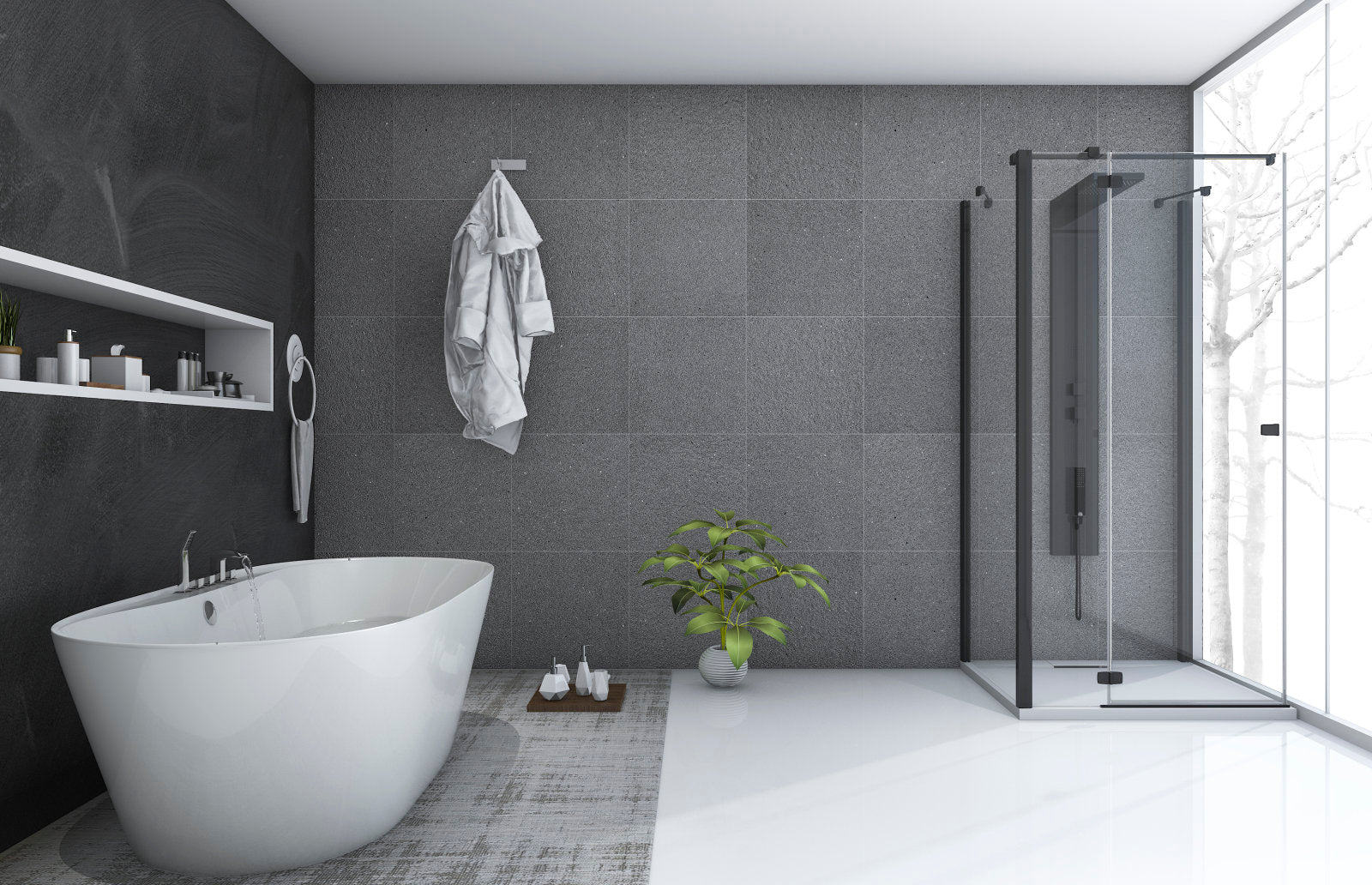Bathing is not only a life for people, but also an art and a culture. The concept of bathing changed with times. Its cultural connotations and various apparent features are gradually evolving. Especially in modern times, with a variety of bathing culture and the background of the times, styling and design, as well as the combination of high-end technology, there are a variety of new trends in bathroom life. Various modern shower settings, such as no-leaking glass doors for showers, bathtub door and shower head, have emerged and developed under the influence of this trend.
Primitive society: Showering under the waterfall became the prototype of today's shower.
In primitive societies, No shower enclosure, no shower glass, no water heater, humans had to go out hunting and catch fish and shrimp in the water, so waterfalls and rivers naturally became the most convenient place to bathe, which is the most primitive way to bathe: with heaven and earth. The earliest records of bathing are from the Egyptians.
Ancient Greece: The birth of the first public baths.
Later, the clever and intelligent ancient Greeks finally opened a new era of human bathing. Because the Greeks liked sports and exercise, there were always bathrooms between stadiums. But the Greeks bathing were used to use cold water. They invented the first bathroom, which brought water into the public baths through a water delivery system.
Romans love bathing: It was the Romans who inherited the mantle of Greek bathing.
The Romans loved bathing very much, and they loved taking hot baths. Public baths were planned in Rome as a city plan, and in its heyday there were more than 1,000 baths in Rome. For the Romans, baths were theaters, leisure centers, social places, and recreation (if you are interested, you can search the frescoes in Pompeii).
The Roman baths were very luxurious, with high domes to let the sun shine down smoothly, majestic marble columns, appliquéd tiles, and even high-class towels made of pure wool.
The faucet in Rome could not be turned off because the water system in Europe was very rich (the quality of tap water in Italy is also very high now), and the Romans built a lot of aqueducts to bring water from rivers, lakes and mountain springs to the city, where it was stored in hundreds of reservoirs and cisterns, and then sent to thousands of homes and public bathrooms through the water supply channels. Therefore, for a long time, the word "water conservation" was not in their minds, and this faucet, which can be opened and closed, was also created for the purpose of overhauling the pipeline.
So as a Roman, you can't turn off the faucet when you take a shower.
Chinese Han Dynasty: "bathing holiday" was established as a legal holiday.
When did the Chinese people start to pay attention to bathing? According to the oracle bones and inscriptions, people began to pay attention to "bathing" during the Shang and Zhou dynasties.
During the Han Dynasty, which was the same time as Rome, bathing even became a gentleman's ritual, and there was also a legal holiday, "Hu Mu", when officials could go home to take a bath and change their clothes, clean up their instruments, and go to work again.
There are three high-spec imperial bathroom bathrooms with ceramic tiles on the walls, wooden flooring, floor drains, and even a fireplace to keep the room warm.
The birth of the family shower: A shower for one person and work for the whole family.
The modern recognized shower was invented by William Feetham, an Englishman, in 1767. But the original design was just too simple and a family product, and although it had a place in the market, it was not widely available.
The emergence of water heaters: Finally the next world, the water heater appeared.
The original prototype of the water heater came from the English painter Benjamin Waddy Maughan. It was a gas water heater. By 1889: Edmund Ruud, a German, drew inspiration from the wisdom of his predecessors and advanced his design by adding a safety feature (actually, a flue exhaust).
Nowadays
With the development of smart homes, wet and dry separation is becoming more and more practical and sensible. The original boring bathing life is becoming more humane and intelligent. Under the bathroom space of the smart home, the shower enclosures occupy an important position.
Now is the peak season of autumn home improvement, many people have begun to prepare for renovation to bathroom design. Many friends said that bathing problems are too many to hurt: bath water flowing to the ground is difficult to clean; after work want to soak a bathtub bath, but a slight stretch of water overflow; open the door loud; and now, SL4U shower glass room easily solve problems of the wet and dry separation, water cleaning, the product is not intelligent, security.


